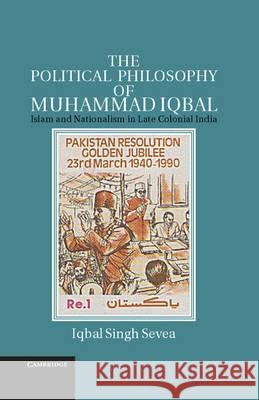The Political Philosophy of Muhammad Iqbal » książka
The Political Philosophy of Muhammad Iqbal
ISBN-13: 9781107008861 / Angielski / Twarda / 2012 / 249 str.
This book reflects upon the political philosophy of Muhammad Iqbal, a towering intellectual figure in South Asian history, revered by many for his poetry and his thought. He lived in India in the twilight years of the British Empire and, apart from a short but significant period studying in the West, he remained in Punjab until his death in 1938. The book studies Iqbal's critique of nationalist ideology, and his attempts to chart a path for the development of the nation by liberating it from the centralizing and homogenizing tendencies of the modern state structure. These were highly relevant and often controversial issues during the years leading up to independence, and Iqbal frequently clashed with his contemporaries over his view of nationalism as the greatest enemy of Islam. In rejecting post-Enlightenment conceptions of religion, he constructed his own particular interpretation of Islam that would provide solutions to all political, social, and economic ills. In many ways, his vision of Islam forged through an interaction with Muslim thinkers and Western intellectual traditions was ahead of its time, and since his death both modernists and Islamists have continued to champion his legacy."











